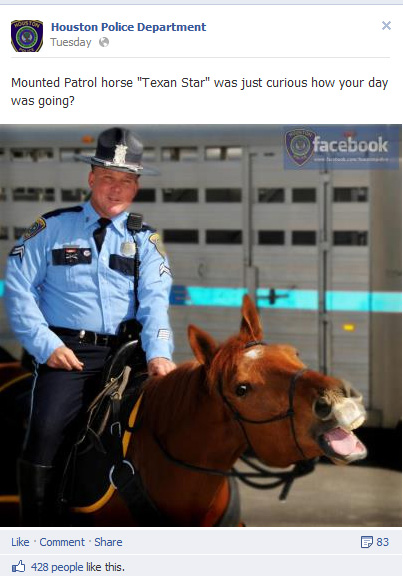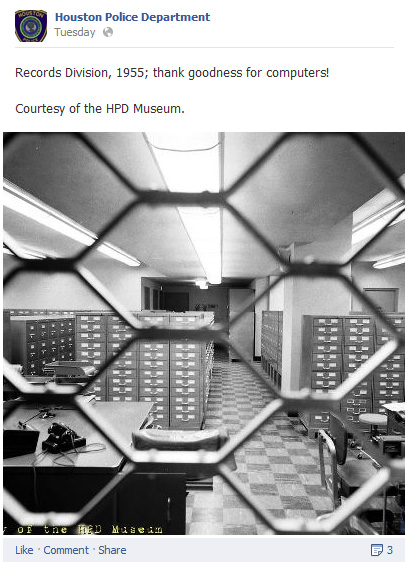Local police departments are adopting social media, and for good reason. Social media has helped the police in the search for criminals, while also allowing these police departments the ability to connect directly with citizens like never before.
Social media and a 21st Century “Wanted” poster
To begin, those “Wanted” posters often seen in old Western films are finally getting an upgrade. Instead of being printed and nailed to storefronts, these “Wanted” notices are being created digitally and being posted to local police department’s Facebook walls. Take the Facebook page of the Eden Prairie, Minnesota, police department. The most recent wall post is a photo from a security camera along with a description of why the pictured people are being pursued by the Eden Prairie police. The post asks its 1,437 fans for help identifying and finding these individuals. In fact, the Police Department’s “About” section reads: “Become a fan and help solve crimes.” Compelling, right?
This is truly a 21st century solution to a centuries-old problem. Through harnessing the power of social media, the city of Eden Prairie can disseminate information to a wider population at near zero cost. It also allows the police department to selectively target its announcements. Instead of a public service announcement that falls largely on deaf or uninterested ears, the Facebook page helps connect with members of the community who really do want to “Help solve crimes.”
Connecting and interacting through social media
Local law enforcement across the country is also taking advantage of social media. Beyond creating “Wanted” posts, police departments have taken advantage of social media to connect with citizens in the community. In the past, interaction with local law enforcement officials was limited and largely involved violations or tickets. Social media, however, allows police departments to connect with citizens in a more positive and friendlier manner. Take the city of Houston’s police department, for instance. Beyond issuing the standard safety reminders for the start of school, it also posts humorous and historical photos. Take this image of a police horse asking Houstonians how their day was, to which one person aptly commented “That’s very neigh-borly of you.”
An important caveat with social media
However, there is an important caveat with police departments joining social media. Keeping records of police activity is a vital process in any law enforcement agency. Keeping records of social media activity is no different. Because Police Departments are government institutions, they are required to keep records of their public communications and activity under Federal laws like the Freedom of Information Act as well as state and local laws. ArchiveSocial can easily preserve social media records in compliance with such laws using cloud-based technology. Fittingly, the City of Houston’s police department also posted this image from 1955 of their Records Division. The post reads “Thank goodness for computers.” Given law enforcement’s use of social media in solving crimes as well as connecting with the community, this admission couldn’t be more appropriate.




